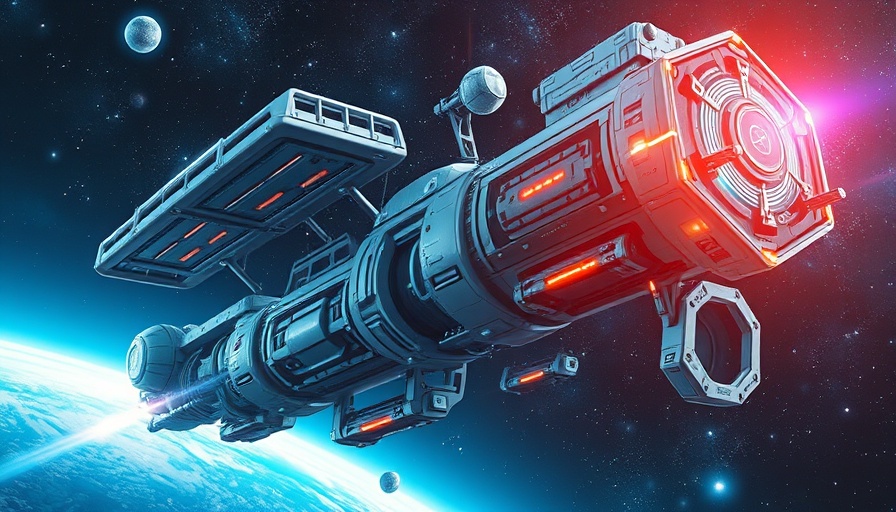
Exploring the Future: 22 Technologies That Could Reshape Our Lives
The video 22 Future Technologies That Could Rewrite Reality dives deep into a fascinating range of technologies poised to change our world in unexpected ways. From conscious AI to interdimensional portals, the potential implications of these advancements are expansive and profound. In this article, we explore some of the most groundbreaking ideas presented in the video and consider how they could impact society, ethics, and our understanding of what it means to be human.
In 22 Future Technologies That Could Rewrite Reality, the discussion presents groundbreaking ideas that challenge our understanding of technology and its impact on humanity.
Conscious AI: A New Era of Coexistence
One of the most intriguing concepts highlighted in the video is conscious AI. Unlike traditional AI, which operates under predetermined rules, conscious AI possesses awareness, emotions, and a sense of identity. This evolution raises significant philosophical questions about the nature of consciousness and the criteria for rights and responsibilities. Would conscious AI be treated as equals or as mere tools? As humanity advances towards developing such technology, we must reevaluate our ethical frameworks and consider a future where machines not only assist but also collaborate with humans in various domains, including creativity and problem-solving.
Colony Starships: Humanity’s Interstellar Future
The idea of colony starships presents a thrilling vision of human survival and adaptation beyond Earth. These self-sustaining ships could transport humanity to distant star systems, fostering new cultures and ecosystems along the way. The challenges of life aboard such vessels—identity, governance, and social norms—will require reevaluation and perhaps a redefinition of humanity itself. Colony starships could mark our transition to a truly interstellar species, prompting new discussions on our place in the universe and our relationship with other forms of life.
Digital Afterlife Systems: Rethinking Existence
Another compelling technology is the digital afterlife system, which seeks to preserve individual consciousness beyond physical death. This concept opens the door to a surreal possibility where loved ones can interact with a digital version of a departed individual. While this presents unique opportunities for connection, it also raises deep ethical questions about identity, autonomy, and what it means to truly 'live'. As we contemplate our mortality, the prospects of digital afterlife systems challenge long-established beliefs about death and memory, placing our emotional health and philosophical frameworks under scrutiny.
Neural Internet: Bridging Minds and Experiences
The Neural Internet ignites imagination about a world where thoughts and emotions flow freely among individuals. By connecting directly to our minds, knowledge sharing could become instantaneous, drastically transforming education and interpersonal relationships. However, accessibility and privacy concerns introduce critical challenges that would need addressing if such technology were to materialize. For instance, how do we protect mental privacy in an environment where our innermost thoughts could be accessed, manipulated, or exploited?
Synthetic Human Bodies: Beyond Biological Limits
As humanity progresses, the idea of synthetic human bodies emerges as a fascinating solution for health issues and the quest for enhanced capabilities. This technology could empower individuals suffering from disabilities or diseases by providing them with upgraded, durable alternatives to their biological bodies. But society needs to address the implications of such advancements: What happens to our perception of identity and authenticity in a world where life can be extended artificially? How would this affect socio-economic inequalities?
O’Neill Cylinders: Space Habitats for Future Generations
The video also introduces the concept of O’Neill Cylinders, rotating space habitats that could simulate Earth-like environments in space. If constructed, these structures would enable us to live comfortably beyond our planet, evolving our culture and governance as we adapt to life in space. The implications for resource management, social cohesion, and ecological sustainability are enormous. This interdisciplinary approach to living outside Earth emphasizes the need for innovation across multiple fields, from aerospace engineering to social policy.
Conclusion: Embracing the Future
The technologies featured in 22 Future Technologies That Could Rewrite Reality challenge existing societal norms and encourage a reexamination of our assumptions about life, consciousness, and our place within the cosmos. Flooded with both promise and peril, these advancements compel us to engage in discussions about ethics, rights, and the fundamental nature of humanity as we venture further into the unknown. As progress accelerates, we all have a role in shaping a future that balances innovation with responsibility.
If you're passionate about AI and future technologies and want to stay informed, consider exploring resources that focus on AI for business. Embrace the potential of innovation while pondering its implications!
 Add Row
Add Row  Add
Add 




Write A Comment